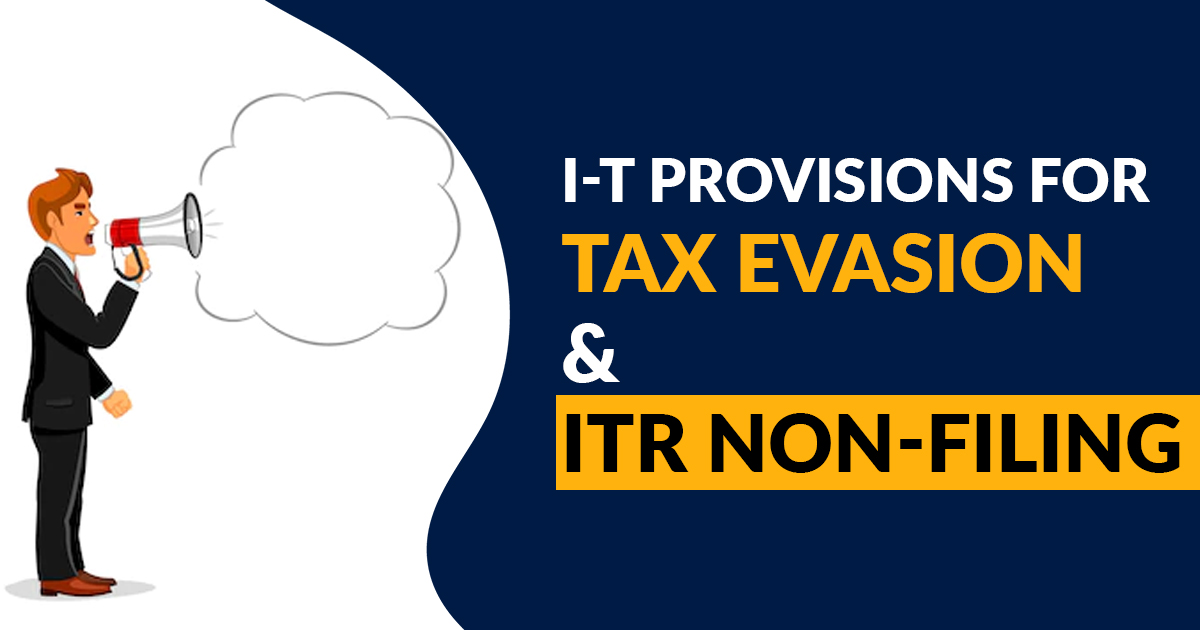
The last date to furnish the ITR for the AY 2024-25 is 31st July 2024 for taxpayers.
Tax Evasion in Knowledge
Section 276C gives punishment for the matter of wilful trying to evade tax, penalty or interest or under-reporting of income. Under section 276C when the individual willfully tries to evade tax, income tax penalty, or interest or under-reports his income, then the person will be punished.
Firstly with difficult imprisonment that is not less than 6 months but might be prolonged to 7 years and with the fine in which the tax seeks to be evaded that would be more than Rs 25 lakh (Rs. 1 lakh up to 30-6-2012).
The second time with the difficult imprisonment which is not less than 3 months that might be prolonged to 2 years (3 years up to 30-6-2012) and with a fine in the other cases.
Thirdly, where tax seeks to be evaded is more than Rs 25 lakh (Rs. 1 lakh till 30-6-2012), imprisonment would be for the duration of not less than 6 months and might be extended to 7 years and with a fine.
Fourthly in other cases, the imprisonment would not be less than 3 months that might be prolonged to 2 years (3 years up to 30-6-2012) and with a fine.
Failure to Furnish ITR Voluntary
Section 276CC gives the imprisonment towards the failure to furnish the return of income. Section 276CC has drawn for any of the distinct defaults by the assessee.
Failure to furnish the return of income under section 139(1). Failure to furnish the return of income in answer to notice provided beneath section 142(1)(i) or section 148 or section 153A.
Difficult imprisonment that would not be less than 6 months but which might be prolonged to 7 years and with the fine in which the tax seeks to be evaded is more than Rs 25 lakh (Rs. 1 lakh up to 30-6-2012).
Difficult imprisonment that would not be less than 3 months but might be prolonged to 2 years (3 years up to 30-6-2012) and a fine in additional cases.
The assessee would not have rolled concerning the section for the failure to file in the given time the return of income beneath section 139(1) when the return is filed through him before the expiry of the assessment year or the tax furnished by him, not as a company upon total income mentioned on the regular assessment as diminished by the advance tax and the TDS would not be more than Rs 3000.
It is essential to note that with effect from the AY 2020-21 the Finance (No. 2) Act, 2019 has surged the limit of the tax subjected to pay from Rs 3000 to Rs 10000. Moreover, the advance tax and the TDS, the self-assessment tax and the TCS will indeed be acknowledged during finding out the tax subjected to pay on the total income.